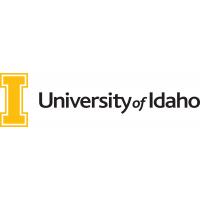Many species that undergo long breeding migrations, such as anadromous fishes, face highly heterogeneous environments along their migration corridors and at their spawning sites. These environmental challenges encountered at different life stages may act as strong selective pressures and drive local adaptation. In this study, we used a pooled sequencing approach to perform whole genome resequencing of seven populations of the anadromous Chinook salmon (Oncorhynchus tshawytscha), a species of important economic, social, cultural, and ecological value, the in the Columbia River basin. The results suggest that a mix of neutral and adaptive evolutionary processes have led to genetically differentiated populations of Chinook salmon that are geographically distinct.
Data Use
License
Creative Commons Public Domain Dedication and Certification (CC-PDDC)
Recommended Citation
Alshwairikh YA, Kroeze SL, Olsson J, Stephens-Cárdenas SA, Swain WL, Waits LP, Horn RL, Narum SR, Seaborn T. 2021. Genome by environment adaptive variation in Chinook salmon [Dataset]. National Center for Biotechnology Information. https://www.ncbi.nlm.nih.gov/bioproject/PRJNA763859
Funding
US National Science Foundation and Idaho EPSCoR: OIA-1757324
Bonneville Power Administration: BPA 2008-907-00
Data and Resources
| Field | Value |
|---|---|
| Modified | 2023-08-30 |
| Release Date | 2023-08-30 |
| Publisher | |
| Identifier | 9bd84ac7-815f-4fa7-9e13-3908b55bef99 |
| Spatial / Geographical Coverage Location | Columbia River Basin USA |
| Language | English (United States) |
| License | Creative Commons Public Domain Dedication and Certification |
| Author | |
| Contact Name | Rebekah Horn |
| Contact Email | |
| Public Access Level | Public |

